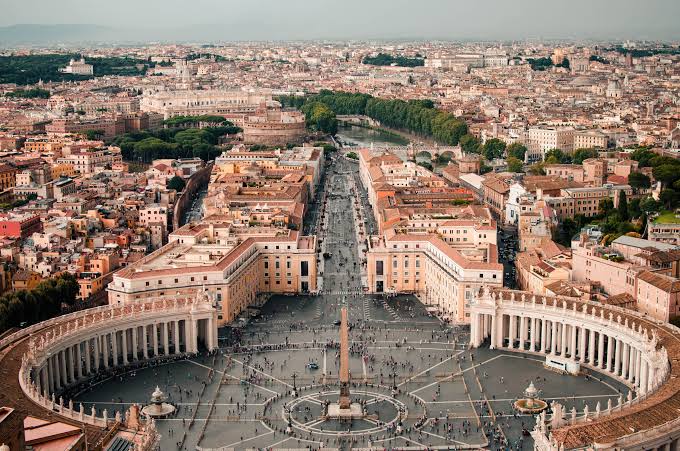
Religion—humanity’s longest-running pyramid scheme. Imagine a business where you sell nothing but promises, collect wealth tax-free, and convince people that questioning your authority is a crime punishable by eternal torture. Sounds like a dream, right? Well, someone already beat you to it. For thousands of years, powerful men have used religion as a tool to control the weak. They wrote the rules, decided which “holy” books were legit, and made sure they lived like kings while the masses stayed poor, obedient, and terrified of invisible punishments.
You’ve been told to “trust the faith.” But what if I told you that faith was designed to keep you powerless? That every major religion has been edited, manipulated, and weaponized to serve the elite? That while you’re kneeling in prayer, the real gods of this world—presidents, popes, and billionaires—are laughing all the way to the bank? This book chapter is not for the easily offended. If you want comforting lies, go to church. If you want the truth—the brutal, undeniable truth—keep reading.
Let’s burn the illusions to the ground.

1. There’s No Evidence That God Exists in Reality—He’s Imaginary
Let’s get straight to the point: if God were real, there would be evidence.
Not feelings, not ancient books, not “just have faith” speeches—actual, testable, undeniable evidence.
But guess what? There’s none.
Think about it. You believe in gravity because if you jump off a roof, you’ll hit the ground.
You believe in electricity because if you stick a fork in a socket, you’ll get fried.
But when it comes to God?
Suddenly, the rules change. Now, you’re supposed to “just believe” without proof.
Convenient, isn’t it?
Religious leaders claim God is everywhere, yet he never shows up where it actually matters. Famine? War? Natural disasters? He’s mysteriously absent.
But forget about world hunger—just lose your car keys, and suddenly, he “works in mysterious ways.”
And let’s not forget how every religion conveniently claims their god is real while dismissing the thousands of others humans have worshipped throughout history.
What’s the difference between Zeus, Odin, and Yahweh? Simple: You were just born in the wrong time or place to believe in the first two.
The truth is, God exists in the same way Santa Claus and the Tooth Fairy do—in people’s imaginations.
The only difference? Grown adults don’t build civilizations around Santa’s rules.
So, tell me—why is an all-powerful, all-knowing deity so allergic to evidence?
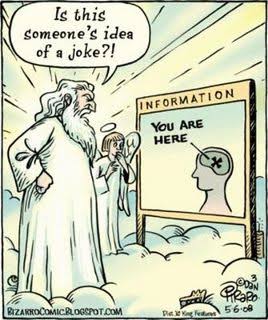
2. Religion Was Created to Control the Behavior of the Masses
If you think religion is about “saving souls,” you’ve been scammed.
It was never about getting people to heaven—it was about keeping them obedient on Earth.
Look at any major religion, and you’ll see the same pattern:
Be humble. (Translation: Don’t challenge authority.)
Obey your leaders. (Translation: Let kings, priests, and politicians control you.)
Suffering is noble. (Translation: Stay poor, stay weak, and don’t fight back.)
Your reward is in the afterlife. (Translation: Work like a slave now, die broke, and don’t question why the priest is driving a Mercedes or a Land cruiser.)
Let’s be real—if religious leaders actually believed in their own teachings, they’d be giving away their wealth instead of hoarding it.
But no, you’re supposed to give them 10% of your salary while they live in mansions, dress in silk robes, and sip expensive wine.
Meanwhile, you’re out here struggling, waiting for a “blessing” that never comes.
Religion is the perfect tool for controlling people because it doesn’t need armies or weapons.
It convinces you to police yourself. You don’t need chains if your mind is already in a cage.

And the funniest part? The rulers and elites who push religion on the masses rarely follow it themselves.
They tell you to “turn the other cheek,” but they’ll bomb entire countries for profit. They tell you to “live simply,” but they fly private jets.
So, ask yourself—if religion is really about morality, why are its biggest preachers always the richest and most powerful people on Earth?
3. You Don’t Need to Believe in God to Be a Good Person
One of the biggest lies religion ever sold was the idea that morality comes from God.
As if without a holy book, humans would suddenly turn into bloodthirsty savages, running through the streets committing crimes because “there’s no divine punishment.”
Let’s use some common sense here:
Do you avoid murder because you fear hell, or because you’re not a psychopath?
Do you treat people with respect because a book told you to, or because basic human decency exists?
Do atheists wake up every morning thinking, “Since I don’t believe in God, let me go rob a bank today?”
Morality is not some divine gift—it’s a product of human nature, social cooperation, and logical thinking.
Even in ancient societies before the major religions, people understood concepts like fairness, kindness, and justice.
Why? Because morality is about survival and community, not about fear of punishment from an invisible being.
And let’s be honest—if your only reason for being a good person is that you’re scared of God’s wrath, are you actually good? Or just afraid of getting caught?
True morality comes from understanding right and wrong, not from following orders like a mindless servant.
History proves this: Some of the worst atrocities—crusades, inquisitions, religious wars, terrorism—were done in the name of God. (More on this later).
Meanwhile, plenty of atheists and secular people have lived ethical, honorable lives without needing to pray five times a day or attend church on Sundays.
So next time someone tells you “Without God, people would have no morals,” ask them this: If they lost their faith tomorrow, would they suddenly start stealing and killing?
If the answer is yes, they were never good to begin with—just well-trained.
4. Why Are So Many People Religious?
If religion is just a tool for control, why do billions of people still believe in it?

Simple—because it’s the perfect psychological trap. Let’s investigate these facts:
1. People Are Indoctrinated from Birth
Nobody is born religious. A baby doesn’t pop out of the womb praising Jesus, chanting “Allahu Akbar,” or meditating on karma.
Religion is programmed into people before they even learn to think critically.
Parents, schools, and entire cultures drill it into children’s heads before they can question it.
By the time they’re old enough to think for themselves, they’re already trapped.
It’s like hacking a computer and installing a virus at the factory—by the time the owner gets it, the system is already compromised.
2. Religion Exploits Fear
Humans are wired to fear the unknown. Death, suffering, misfortune—these things terrify people.
Religion swoops in like a scam artist and says, “Don’t worry! Just follow our rules, and you’ll be safe!”
It promises heaven, threatens hell, and suddenly, people obey out of fear, not logic.
And the best part? The evidence for these afterlife claims is exactly zero.
But fear-based belief doesn’t need proof—it just needs enough people to be scared.
3. Religion Offers False Comfort
Life is hard. People suffer. Instead of facing reality and fixing their problems, religion gives them an easier option: “Just pray about it!”
Broke? Don’t work harder—just tithe and wait for “God’s blessing.”
Sick? Who needs science? Just “have faith” and hope for a miracle.
Oppressed? Don’t fight back—your reward is in heaven!
Religion turns real-world problems into “spiritual tests,” tricking people into accepting suffering instead of fighting to improve their lives.
It’s the ultimate distraction.

4. Humans Love to Follow the Crowd
Most people don’t believe in God because they’ve studied religion—they believe because everyone else does.
The herd mentality is powerful. People fear standing out, being judged, or questioning traditions.
It’s easier to conform than to think critically.
Ever wonder why questioning religion is so taboo?
It’s because the system depends on people not asking hard questions. The moment too many people start thinking, the illusion cracks.
5. Religious Leaders Keep the Cycle Going
Religions don’t survive for thousands of years by accident. They have a built-in defense mechanism:
Questioning the faith = sin
Leaving the faith = severe punishment
Doubting = weakness
It’s like an abusive relationship—you’re told that if you leave, bad things will happen to you.
Meanwhile, the ones running the system (priests, imams, pastors) are laughing as they collect donations and live like royalty.
So Why Are So Many People Religious?
Because they’re trained to be.
Because they’re scared.
Because they crave comfort.
And because religion has spent thousands of years perfecting the art of mind control.
But once you see the strings, the puppet show stops being impressive.
5. Most Evil in History Was Committed by Religious People
If religion is supposed to make people holy, then why does history look like a horror movie starring religious fanatics?
Let’s do a quick recap of some of the greatest hits:
The Crusades (1096–1291): Christians slaughtered entire cities, burned people alive, and called it “God’s will.” Nothing says “love thy neighbor” like a sword through the chest.
The Spanish Inquisition (1478–1834): Torture, executions, and mass fear campaigns—all in the name of a “merciful” God. If you ever questioned the church, you got a personal invitation to the stake.
Witch Hunts (1400s–1700s): Thousands of innocent women were murdered because some religious guy thought they were too independent or “looked suspicious.”
Religious Terrorism (Modern Era): Suicide bombings, beheadings, and mass killings—carried out by people who believe their god wants them to do it.
Child Abuse Scandals in Churches: The same institutions that preach “morality” have protected some of the worst criminals for decades.
And the best part? These same religious groups still claim to be the moral authority.

They’ll tell you atheists are “evil” while their own hands are dripping with centuries of blood.
Why Does Religion Produce So Much Evil?
Because it allows people to commit atrocities with a clean conscience.
When someone believes God is on their side, they’ll justify anything—murder, war, slavery, abuse—because they think it’s “divine justice.”
An atheist who commits a crime knows it’s wrong. A religious fanatic who commits a crime believes it’s holy. See the difference?
So next time a religious person says, “Without God, you’d have no morals,” ask them why history’s most brutal murderers, torturers, and warlords were so deeply religious.
6. Heaven, Hell, Satan, Demons, Jinn, and Angels Are All Imaginary
You know how every culture has its own version of ghosts, monsters, and supernatural beings?
Religion is just fancy mythology that got taken too seriously.
Let’s break it down:
1. Heaven and Hell – The Ultimate Carrot and Stick
Heaven and hell are the oldest psychological scam in the book.
Promise people an eternal paradise if they obey, and threaten them with eternal torture if they disobey. It’s the perfect manipulation tool:
“Follow our rules, or burn forever!”
“Don’t ask questions, or you’ll face God’s wrath!”
“Give us 10% of your income, and you’ll be rewarded in the next life!”
Notice the pattern? Heaven is always just out of reach, and hell is the punishment for thinking for yourself. Convenient, isn’t it?
And let’s be real—how does eternal fire even work? Does the soul have nerves? Does it feel pain without a body? Does it ever get used to the flames, or is there some supernatural “pain reset button”? Is it being cremated alive?
The logic collapses the moment you think about it.
2. Satan – The Villain That Makes No Sense
Religions tell you Satan is the ultimate evil, yet somehow, he:
Tells humans to seek knowledge (Adam and Eve).
Punishes bad people in hell (Isn’t that what God wants?).
Doesn’t demand worship or threaten people for not believing in him.
Meanwhile, God is the one wiping out entire cities, flooding the world, and ordering genocide in holy texts.
But Satan is the bad guy? Okay.
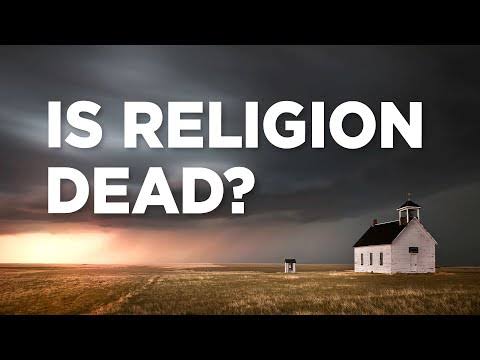
3. Demons and Jinn – The Ancient Version of Ghost Stories
Every culture has some version of spooky creatures that lurk in the shadows:
In Christianity, they’re demons.
In Islam, they’re jinn.
In Hinduism, they’re asuras.
In African and Asian cultures, they’re evil spirits.
See the pattern?
These are just ancient humans trying to explain weird experiences—sleep paralysis, hallucinations, mental illness—by blaming invisible monsters.
Before science, if you had epilepsy, people thought you were possessed. Now we just call it a neurological disorder.
The more science advances, the fewer places “demons” have to hide.
4. Angels – Religion’s Superheroes
Every major religion has its version of winged warriors and glowing messengers.
But let’s be real—if angels existed, why do they only appear in religious stories and never in real life?
Why is every angel sighting conveniently unverifiable? No cameras, no witnesses, just “I swear I saw one.”
Angels are just mythology’s version of superheroes—powerful, noble, and conveniently serving the side that made them up.
So Why Do People Believe in This Stuff?
Because it plays on fear and hope.
Fear of punishment (hell, demons, Satan).
Hope for reward (heaven, angels, divine protection).
But when you strip away the emotions, you realize these are just fairy tales recycled from older myths.
Heaven, hell, Satan, demons, and angels aren’t real—they’re just stories used to keep people in line.
Take a break to process that information. Get a Mug of Sugarless black coffee.
We are about to get more savage!
7. The Soul Is Just Consciousness – There’s No Ghost Inside You
Religions love telling people they have an eternal, invisible, magical essence inside them—aka, the soul. Sounds deep, right?
But let’s be brutally honest:
The soul is just a fancy way of saying consciousness—the experience of being alive, aware, and thinking. Nothing more.
1. No Scientific Evidence for a Soul
If souls were real, we should be able to measure them, detect them, or at least prove their existence somehow.
But no one has ever found a gram of soul energy, no soul particles, and no ghostly mist floating out of a dying person.
Some believers say the soul “leaves the body” at death. Great—where does it go? If it exists, why has no scientist ever detected it? No MRI, EEG, or brain scan has ever picked up soul activity.
Maybe because…it’s imaginary?
2. The Brain Creates Consciousness
Everything people associate with the soul—thoughts, emotions, memories—comes from the brain.
If you damage certain parts of the brain:
Your personality can change.
You can lose your ability to feel emotions.

Your entire memory can be wiped out.
If the soul controlled these things, why would brain injuries completely alter who you are?
Because there’s no separate “soul” running the show—your brain is in charge.
3. Near-Death Experiences Are Just Brain Glitches
People love talking about “seeing the light” or floating above their bodies during near-death experiences.
But science has already explained this:
Lack of oxygen can cause hallucinations.
Surges of brain chemicals create feelings of euphoria or visions.
Actually, healthy people can induce hallucinations similar to near death experiences using a drug called Ketamine.
Cultural conditioning makes people expect to see angels, heaven, or dead relatives.
Notice that Christians see Jesus, Muslims see paradise, and Hindus see their gods?
Funny how the “afterlife” always matches what people already believe. It’s just the brain playing tricks, not proof of a soul.
4. When the Brain Dies, Consciousness Ends
Turn off a computer, and the programs stop running.
Same with the brain—when it shuts down, your thoughts, memories, and experiences end.
There’s no magical “you” floating away. No upload to a celestial cloud server.
Just nothingness—the same state you were in before you were born.
The Brutal Truth
You don’t have a soul—you are your consciousness, and it’s created by your brain.
The moment your brain stops working, so does “you.”
Religions push the soul idea because it sells hope and fear—hope for an afterlife and fear of punishment.
But reality doesn’t care about our wishes.
Consciousness is temporary, and that’s okay. It just means you should make the most of life while you’re here—because there’s no second round.
8. Religious Books Are Not the Originals – They’ve Been Rewritten for Control
People assume religious books are divine, unchanged words of God. Wrong.
The truth? These books have been rewritten, edited, mistranslated, and selectively altered for centuries—often for political control rather than spiritual truth.
1. Rewritten and Edited Countless Times
If religious books were truly God’s perfect words, why did humans need to edit them over and over again?

The Bible went from Hebrew to Greek to Latin to English, with errors and bias added each time.
Worse, the New Testament was compiled 300 years after Jesus, meaning nobody who actually met him wrote it.
The Qur’an was originally memorized, and early versions had differences.
The third Caliph, Uthman, standardized one version and burned the rest. If a book is divine, why destroy variations?
The Torah, Hindu Vedas, and other scriptures have also been rewritten, reinterpreted, and even lost over time.
Religious books have never been fixed, divine texts. They are historically revised documents, shaped by human hands, not gods.
2. Altered for Political Control
Powerful rulers realized that controlling religion = controlling the masses. So they edited religious books to make people obedient.
Romans edited the Bible to fit their empire. Emperor Constantine (325 AD) organized the Council of Nicaea, where church leaders voted on which books to include. Yes, they literally voted on “God’s word.”
The Catholic Church added doctrines like original sin to make people feel guilty, ensuring they needed the church for salvation.
Colonialists used Christianity to make Africans submissive, preaching “turn the other cheek” while they looted entire nations.
Islamic rulers shaped interpretations of the Qur’an to justify monarchies, conquests, and strict obedience.
Religious books are not divine laws; they are manipulated scripts for ruling societies.
3. Some Books Were Removed or Lost
If religious books were truly sacred, why were many of them banned, destroyed, or erased?
The Gospel of Thomas (which portrays Jesus differently) was banned.
The Book of Enoch (which talks about fallen angels) was removed.
The Dead Sea Scrolls contain older versions of biblical stories, proving they changed over time.
Hindu texts like the Bhagavad Gita were later additions, not original Vedic scriptures.
The moment you realize that humans picked and altered religious texts, the illusion of divine perfection collapses.
4. Translation Errors Changed Meaning
Ever played “Chinese whispers”? That’s what happened with religious texts.

The Hebrew word “alma” meant young woman, but it was mistranslated into Greek as virgin, creating the Virgin Mary myth.
The Bible never originally mentioned “homosexuality”, but modern translations added it to fit new agendas.
The phrase “eye of the needle” actually referred to a narrow city gate, not a literal needle, changing how people interpreted Jesus’ views on wealth.
If religious books were truly divine, why are they full of translation errors and historical revisions?
The Bottom Line
The religious books we have today are not the originals.
They have been rewritten, censored, mistranslated, and politically weaponized to control societies.
Religions demand blind faith because if people actually studied the history of these books, they’d realize they were man-made tools of control—not divine messages.
9. Following the Teachings of Modern Scriptures Would Be a Sociological Disaster
If people followed religious books word for word today, society would collapse into chaos, oppression, and outright lunacy.
Modern scriptures contain rules that are outdated, contradictory, and downright dangerous for any functioning civilization.
Pick your Bible now:
1. They Promote Slavery, Genocide, and Brutality
Religious books are full of barbaric laws that would make even the worst dictators blush.
If followed literally, society would look like a medieval nightmare.
Slavery is not only allowed—it’s encouraged.
The Bible says, “Slaves, obey your masters” (Ephesians 6:5).
The Qur’an regulates slavery rather than banning it.
The Torah literally gives rules for beating slaves (Exodus 21:20-21).
If God is so moral, why didn’t he just say, “Hey, guys, don’t own people like farm animals”?
Genocide is divine justice.

God in the Old Testament orders the killing of entire cities: “Kill every man, woman, child, and even the animals” (1 Samuel 15:3).
The Qur’an speaks of violently subduing non-believers (9:5).
The Hindu scriptures justify caste-based oppression, where lower castes are treated like garbage.
If religious laws were enforced today, mass killings would skyrocket, and human rights would disappear overnight.
2. Women (Tribal Queens) Would Be Treated Like Property
Most religions treat women as second-class citizens, with rules straight out of a caveman’s handbook.
The Bible says women must be silent in church (1 Corinthians 14:34).
The Qur’an allows men to beat their wives (4:34).
The Torah allows fathers to sell their daughters as slaves (Exodus 21:7).
If these rules were enforced, women would have zero rights, arranged marriages would be the norm, and modern female leaders would be burned at the stake for witchcraft.
3. Religious Laws Would Destroy the Economy
If people truly followed religious financial teachings, the global economy would crash overnight.
The Bible condemns lending money with interest (Deuteronomy 23:19-20). Banks? Gone.
Islamic finance bans interest, making modern banking nearly impossible.
The Bible and Qur’an discourage long-term wealth accumulation, favoring dependence on divine providence.
Without loans, credit, and investment, say goodbye to business, housing, and economic growth.
4. Science and Medicine Would Be Stuck in the Dark Ages
Religious books are filled with scientific nonsense that, if taken seriously, would lead to mass deaths and ignorance.
The Bible says disease is caused by sin and demons—not bacteria or viruses. Imagine banning vaccines and antibiotics in favor of prayers and exorcisms.
The Qur’an claims semen originates from between the backbone and ribs (86:6-7). Doctors would have to throw out centuries of medical knowledge.
The Bible claims the Earth is flat and sits on pillars (Job 26:7). Goodbye, physics, astronomy, and space exploration.
If we followed religious science, people would be dying from treatable diseases, believing the Earth is flat, and banning modern technology.
5. Society Would Be Ruled by Theocracies, Not Democracies
Religious books support divine rule, where leaders are chosen by God (imaginary being), not the people.
The Bible says governments should serve God’s law (Romans 13:1).

Islamic Sharia Law prioritizes religious law over civil rights.
The Torah and Hindu texts support caste-based hierarchies instead of meritocracy.
If religious governance replaced democracy, we’d be ruled by priests, imams, and “divinely chosen” kings, with no say in our own lives.
6. “Faith Over Reason” Would Make People Gullible and Easily Manipulated
Religious teachings emphasize faith over logic, which leads to blind obedience rather than critical thinking.
People would stop questioning authority, making them easy to control and exploit.
Religious wars would return as rival faiths battle for dominance.
Superstition would replace science, leading to a new Dark Age of ignorance.
What I mean?
If modern religious scriptures were followed literally, society would collapse into violence, oppression, ignorance, and economic disaster.
Religions pretend to offer morality, but their actual rules belong in a barbaric past—not in a modern world.
10. Why Do Schools Teach Religious Falsehoods to Children?
Because indoctrination works best when the mind is young, gullible, and easy to control.
Schools don’t teach religion as a historical curiosity or a study in mythology—they teach it as truth, programming children before they have the ability to question it.
1. Religion Survives Through Early Indoctrination
Let’s be honest: if people weren’t forced into religion as children, most wouldn’t believe it as adults.
A 5-year-old is told: “God is real. Believe or burn in hell.”
A 15-year-old is told: “This doesn’t make sense.”
The 5-year-old blindly believes; the 15-year-old asks questions.
That’s why religious institutions focus on children—because once people learn critical thinking, they start seeing the holes in the stories.
2. Schools Are Tools of Government and Religious Control
Most school systems were created not to teach independent thought—but obedience.
Schools teach “God made you, obey Him.”
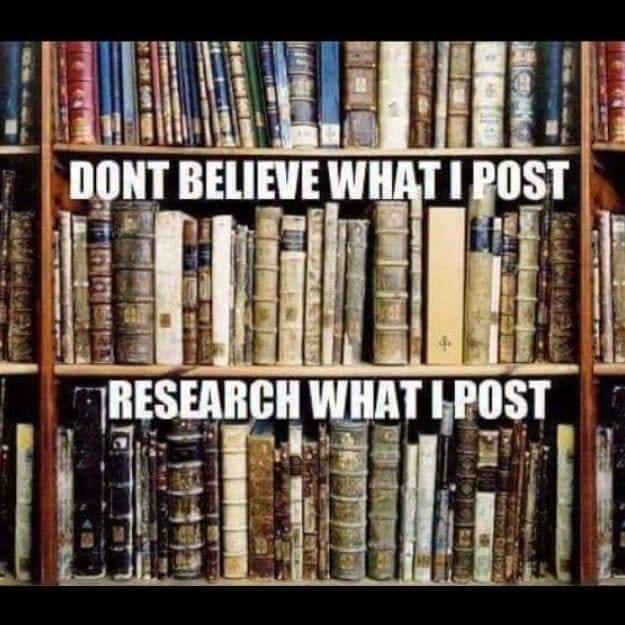
Schools teach “Authority is always right.”
Schools discourage questioning religious narratives.
A person who questions religion is likely to question authority, and governments hate that.
That’s why most school systems partner with religious institutions—they produce obedient, passive citizens who don’t challenge the system.
3. Religion Is Used to Control Morality
Rather than teaching real morality (how actions affect others), schools teach religious morality (obeying a deity, even when it’s illogical).
Instead of teaching “Don’t kill because it harms people,” they teach “Don’t kill because God says so.”
Instead of teaching “Be kind because it strengthens society,” they teach “Be kind or face eternal damnation.”
This keeps people dependent on religious authority instead of developing their own ethical reasoning.
4. Fear-Based Learning Works
Religions thrive on fear tactics—and schools help reinforce them.
“God is watching you, even in secret.”
“You will burn in hell if you doubt.”
“Obey religious rules or be punished forever.”
This terrorizes young minds, ensuring they grow up too scared to question the lies.
5. Most Teachers Were Indoctrinated Themselves
The cycle continues because most teachers grew up being taught the same religious lies.
They parrot what they were taught—not because it’s true, but because they were programmed, too.
Questioning religious teachings feels like a sin, so they never analyze them critically.
It’s a never-ending loop of brainwashing, passed down from one generation to the next.
The Bottom Line
Schools teach religious falsehoods because it keeps people obedient, dependent, and afraid to question authority.
It’s not about truth—it’s about control.
11. Religious Leaders Are More Interested in Power and Money Than in Truth
Let’s not kid ourselves—most religious leaders aren’t in it for spirituality, morality, or enlightenment.
They’re in it for money, influence, and control.
If religion were truly about helping people, then why do its biggest preachers live like kings while their followers struggle?
1. The Richest Preachers Live Like Royalty
Ever noticed how the holiest men always seem to have the fattest bank accounts?
Televangelists fly in private jets while their followers are told to “give sacrificially.”
Mega-church pastors own mansions, yachts, and luxury cars while their congregations can barely afford rent.
Imams, priests, and gurus collect donations while preaching the “virtue of poverty.”
If humility is so godly, why do they live like rockstars?
2. Religion Is the Ultimate Business—No Taxes, No Accountability
Most religious institutions don’t pay taxes. That means:
Churches make billions while hospitals and schools struggle.
Mosques collect endless tithes without ever showing financial records.
Temples amass fortunes while the poor stay desperate.
No oversight, no financial reports, no audits—just pure profit.
3. The “Prosperity Gospel” Scam
Modern preachers sell a brilliantly evil idea:
“Give money to God, and He’ll bless you.”
(Translation: Give money to me, and I’ll get richer.)
If you stay poor? “You just didn’t have enough faith.”
They sell hope like a drug dealer—and their customers keep coming back, broke but desperate.
4. They Exploit Guilt and Fear
Religious leaders don’t just take money—they make you feel guilty if you don’t give.

“God sees your offerings.”
“Don’t be stingy with the Lord.”
“If you don’t give, you’re robbing God.”
Imagine a regular business saying, “If you don’t pay us, you’ll burn forever.” That would be extortion—but in religion, it’s called “faith.”
5. They Keep People Ignorant on Purpose
If people started thinking critically, religious leaders would lose power overnight.
They discourage questions—because questions lead to truth.
They demonize science—because science proves them wrong.
They rewrite history—because history exposes their lies.
The less you know, the more they control you. That’s why churches love obedient sheep, not thinking men.
The Bottom Line
Religious leaders are not holy men—they’re businessmen in robes.
They trade fear for money and obedience for power.
If God exists, He’s probably looking down like, “I never said any of this nonsense.”
12. There Are No Answered Prayers Because Deities Are Imaginary
If prayer worked, hospitals would be empty, amputees would grow new limbs, and religious gamblers would win every bet.
But guess what? Reality doesn’t care about your prayers.
1. Prayers Get the Same Results as Wishing on a Star
Ever noticed that praying gives the same results as:
Wishing upon a shooting star?
Throwing coins into a fountain?
Asking Santa for a new bike?
That’s because they’re all the same thing—magical thinking with zero real-world effect.

2. Religious Leaders Know This—That’s Why They Make Excuses
When prayers don’t work, religious leaders have a list of pre-packaged excuses:
“God works in mysterious ways.” (Translation: Nothing happened, but don’t stop believing.)
“God said no.” (Translation: Your prayer failed, but keep donating.)
“You didn’t have enough faith.” (Translation: It’s your fault, not God’s.)
It’s a perfect scam—no matter what happens, they always have a way to blame YOU instead of questioning the whole idea of prayer.
3. Why Do We Need Doctors, Firefighters, and Police If Prayer Works?
If prayer actually worked:
Why go to the hospital? Just pray for healing.
Why call the police? Just pray for safety.
Why buy insurance? Just pray for financial security.
Deep down, even religious people don’t trust prayer—they still go to doctors, lock their doors, and work hard for money.
Because reality doesn’t respond to imaginary deities.
4. The Classic Experiment: Prayer Has NEVER Been Proven to Work
Scientific studies have tested prayer. The results? Zero effect.
When doctors secretly prayed for patients, nothing changed.
When churches held mass prayers, crime didn’t drop.
When religious leaders prayed for rain, droughts continued.
If prayer worked, we wouldn’t need science, medicine, or effort. But guess what? We do.
5. The Universe Runs on Laws, Not Divine Favors
Reality doesn’t care how many times you fold your hands and beg.
The laws of physics don’t pause just because someone wants a miracle.
Gravity doesn’t take a break because a preacher asked nicely.
Cancer doesn’t vanish because someone mumbled words into the air.
The universe keeps running the way it always has—prayer or no prayer.
Prayer is nothing more than a coping mechanism—a way to feel like you’re doing something when you’re actually doing nothing.
It’s the spiritual equivalent of pressing a fake elevator button and hoping it gets you to the top floor.
Take another Break at this point!
A 40 minutes Gym Session, Hydration Break, A Sunning Break, A Fucking Break!

13. Nobody Ever Died for Mocking God—Only for Offending His Followers
If God were real and all-powerful, He wouldn’t need weak, emotional humans to defend Him.
But strangely, the only time people get punished for mocking God is when other humans decide to take matters into their own hands.
1. If God Punished Mockery, Comedians Would Drop Dead
Think about it—stand-up comedians rip into religion all the time. If blasphemy were a death sentence:
George Carlin wouldn’t have lived into his 70s.
Ricky Gervais wouldn’t still be making movies.
Every atheist YouTuber wouldn’t be thriving.
And yet, the only thing that happens to them is more ticket sales.
2. The Only Ones Doing the Killing Are Religious Fanatics
When someone “dies for mocking God,” it’s never lightning from the sky or a mysterious heart attack. It’s usually:
A mob with burning torches (because God apparently needs backup).
A government enforcing blasphemy laws (because the Almighty can’t handle criticism).
A lone zealot with a knife or gun (because faith is so fragile, it needs bullets).
God doesn’t kill blasphemers—His insecure followers do.
3. If God Were Real, He Would Handle His Own Business
If an all-powerful deity were offended, He wouldn’t need angry mobs, censorship laws, or assassins. He would:
Strike people down instantly.
Make their tongues fall off.
Turn them into dust or pillars of salt.
But guess what? That never happens.
Instead, humans—who claim to “trust God’s plan”—feel the need to take revenge on His behalf.
Why? Because deep down, they know nothing supernatural will happen.
4. Religious Leaders Use “Divine Punishment” to Scare People
Ever noticed how religious people say things like:
“That celebrity mocked God, and now their career is over!”
“That politician didn’t respect religion, and look what happened!”
“God will punish those who insult Him!”
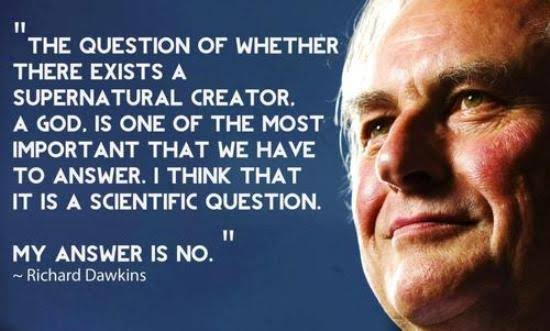
And yet, the biggest sinners, liars, and criminals—many of whom claim to be religious—are living in mansions with zero divine consequences.
Funny how God’s wrath always seems to be “coming soon” but never actually arrives.
5. History Proves That Mocking God Is Completely Safe
Many of the most famous intellectuals, scientists, and philosophers openly mocked religion—and they lived long, productive lives:
Voltaire mocked Christianity and died peacefully in his bed.
Bertrand Russell wrote Why I Am Not a Christian and lived into his 90s.
Richard Dawkins has spent decades ridiculing religion—and is still alive and writing.
Meanwhile, plenty of deeply religious people die young in tragic ways. So where’s the pattern?
The Bottom Line?
If blasphemy were truly dangerous, atheists wouldn’t exist.
But they do—and they’re thriving.
The real threat isn’t from God—it’s from the insecure followers who can’t handle a joke.
14. Religion Thrives on Fear, Not Truth
If religion were based on truth, it wouldn’t need threats, guilt, and fear-mongering to keep people in line.
But what do we see instead? A constant flood of fear tactics designed to make people obey without question.
1. Fear of Hell: The Ultimate Psychological Blackmail
Religion loves to sell you a problem that doesn’t exist (hell) and then offer you the only solution (obedience). It’s the oldest scam in history:
“Believe, or you’ll burn forever!” (As if a loving God would torture you for eternity for thinking critically.)
“Doubt, and you’ll be punished!” (Because truth should be accepted blindly, right?)
“Follow the rules, or face divine wrath!” (Even though the rules keep changing.)
If hell were real, you’d think God would provide actual evidence instead of relying on scare tactics.
2. Fear of Judgment: Keep People Afraid, Keep Them Obedient
Religions tell you that you’re always being watched—not just by society, but by an invisible being who monitors your thoughts, dreams, and desires.

“God knows your every sin.” (Yet somehow, religious leaders keep getting caught in scandals.)
“Even thinking bad thoughts is a sin!” (So much for free will.)
“God sees everything!” (Except when priests molest kids—then He suddenly looks away.)
It’s not about morality—it’s about control. Always Remember That!
If you can convince people that they’re constantly under surveillance, they’ll police themselves—no chains necessary.
3. Fear of the Unknown: Religion’s Favorite Trick
What happens after death? Nobody knows.
But religion claims to have the answer—and conveniently, it’s the one that benefits them the most:
“Only WE know what happens after you die!”
“If you don’t obey, the afterlife will be horrible!”
“Give us money, follow our rules, and MAYBE you’ll get a reward!”
It’s like a salesman telling you, “Buy my invisible insurance, or suffer forever.”
4. Fear of Being an Outsider: Religion Keeps You in Line with Social Pressure
Humans crave belonging, and religion exploits this need to keep people trapped.
“You’re nothing without faith.” (Translation: Stay in the group, or you’re worthless.)
“Unbelievers are lost souls.” (Translation: If you leave, expect social rejection.)
“Your family will be disappointed if you doubt.” (Translation: Guilt-trip activated!)
Ever wonder why so many people stay in religion even when they don’t believe anymore? Because religion makes leaving a nightmare.
5. Fear Kills Curiosity—And That’s the Goal
The moment you stop being afraid, you start asking dangerous questions:
Why does an all-powerful God need money?
Why does religion contradict science?
Why do religious leaders live in luxury while followers struggle?
Fear shuts down critical thinking. And without critical thinking, religion thrives.

If religion were based on truth, it wouldn’t need fear to survive.
But fear is its strongest weapon—because once someone is terrified of questioning, they’ll believe anything.
15. Religions Evolve Just Like Cultures—Because They Are Man-Made
Religious people love to claim their faith is unchanging, eternal, and divine, but history tells a different story.
Every major religion has evolved, split, and rebranded itself over time—just like human cultures, because that’s exactly what they are: human creations.
1. Religions Are Constantly Edited
If religions were truly divine, they wouldn’t need updates, revisions, and cultural adjustments. But that’s exactly what has happened throughout history:
Christianity: Originally a minor Jewish sect, it borrowed heavily from older religions (virgin births, dying-and-rising gods, and even Sunday worship were all pre-Christian concepts).
The Bible itself has been edited, translated, and reinterpreted countless times, with books added and removed along the way.
Islam: After Muhammad’s death, Islam split violently into Sunni and Shia factions over leadership disputes.
The Quran is claimed to be unchanged, yet early versions existed with differences—and Islamic laws have shifted dramatically depending on rulers and cultural influences.
Hinduism: What people call Hinduism today is a fusion of multiple ancient Indian traditions.
Gods were added, scriptures were modified, and some original practices (like animal sacrifices) were later dropped or transformed into symbolic rituals.
Judaism: The Old Testament is a mix of older Middle Eastern myths, and Jewish laws have evolved drastically over time.
Many early Jewish practices—like polygamy and slavery—are now rejected by modern Jews.
If a perfect God delivered these religions, why have they changed so much?
The answer is obvious: religions evolve because they are human-made.
2. Religious Laws Adapt to Society—Not the Other Way Around
Ever notice how religious leaders “reinterpret” old rules when they become inconvenient?
That’s because religion doesn’t shape human society as much as human society shapes religion. Examples:
Slavery was once fully supported by Christianity and Islam—but as societies progressed, religions had to quietly distance themselves from it.

Women’s rights: In the past, almost all religions treated women as property.
Today, many religious groups have adjusted their views because they’d lose followers if they didn’t.
LGBTQ+ issues: What was once condemned outright is now being debated and softened in many religious circles.
(We do not condone such things on this platform)
Dietary laws: Many religious food restrictions were based on ancient hygiene issues, not divine wisdom.
That’s why you see modern Jews eating cheeseburgers and Christians happily eating pork and shrimp—rules evolve.
3. New Religions Keep Popping Up
If existing religions were truly the one and only truth, why do new faiths keep emerging?
Mormonism (LDS) started in the 1800s with Joseph Smith claiming to find golden plates. Now it has millions of followers.
Scientology was literally created by a science fiction writer, and yet people still believe in it.
New Age movements keep blending old spiritual ideas into modernized, repackaged religions that fit today’s culture.
This proves that humans create religions based on their time, place, and needs—not because gods are revealing anything new.
4. Believers Reject Old Versions of Their Own Religion
Ask a modern Christian if they want to follow Old Testament laws exactly as written:
Stoning people to death? No, that’s outdated.
Owning slaves? No, that was cultural.
Killing nonbelievers? No, that’s extreme.
So why claim the Bible is the “unchanging word of God” if so much of it has been abandoned?
The same goes for Muslims, Hindus, and every other religious group—they cherry-pick what fits modern life and quietly ignore the rest.
If a religion is true and divine, it shouldn’t need constant updates.
The fact that religions evolve just like human cultures proves they are man-made social constructs, not eternal truths.
Final Thought
People act like their religion is the ultimate, timeless truth, but if they lived 1,000 years ago, they’d be following a completely different version of it
or an entirely different faith altogether.
That’s not the work of a god.
That’s just history.
Conclusion: Wake Up, Think for Yourself
Religion has survived for centuries not because it’s true, but because it’s useful—to those in power.
It controls people with fear, silences them with guilt, and rewards blind obedience while punishing critical thinking.
But here’s the truth:
You don’t need religion to be moral. Goodness isn’t about memorizing scriptures—it’s about actions.
You don’t need to fear divine punishment.
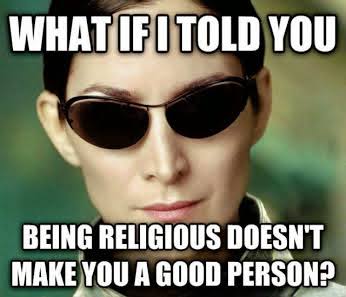
If a God existed and cared about justice, the world wouldn’t be run by liars, thieves, and hypocrites.
You don’t need to worship or submit to be happy. Freedom comes when you stop looking for approval from an invisible master.
The biggest weapon of religion is keeping people from thinking for themselves.
The biggest weapon against religion? Asking questions they don’t want you to ask.
So wake up, question everything, and own your mind—because if your beliefs can’t survive scrutiny, maybe they weren’t worth believing in the first place.

